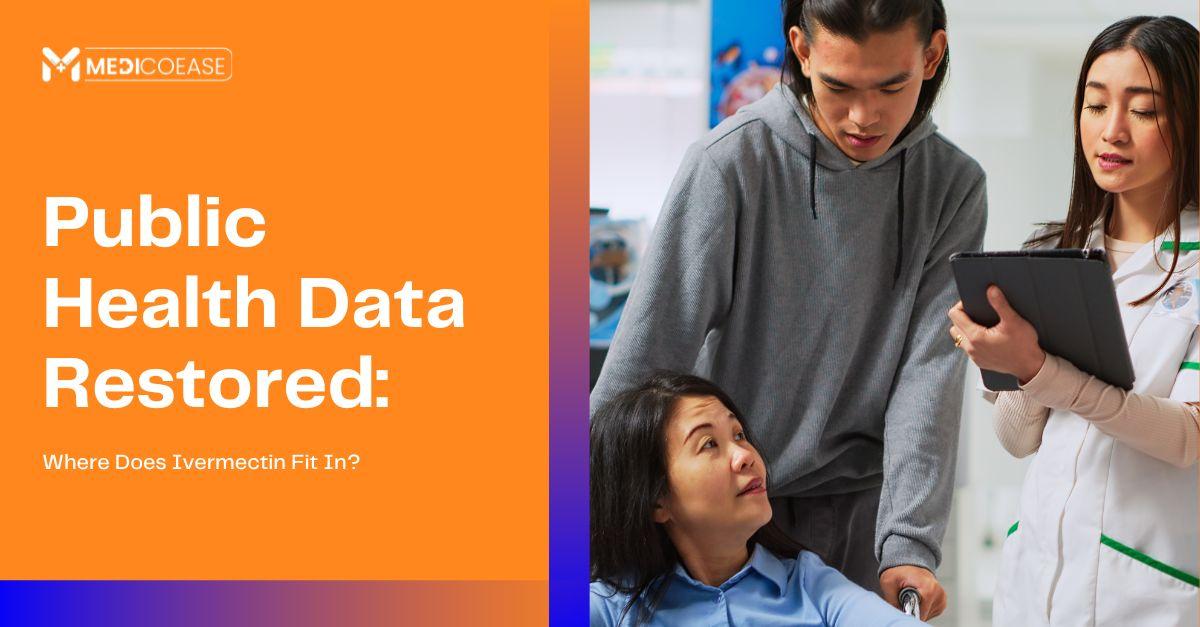The restoration of public health webpages has reignited discussion on ivermectin, raising questions about transparency, data access, and healthcare rights in the United States. Once a peripheral topic, ivermectin is now at the intersection of public health policy, archival data access, and patient advocacy. This article explores how restored resources, data-driven policies, and access debates shape the conversation around ivermectin in 2025.
💻 Public Health Webpage Restorations Spark Ivermectin Interest
In 2025, federal and state agencies have restored previously archived public health webpages, many of which contained early COVID-19 treatment data. These restorations include records of clinical trials, research protocols, and treatment outcomes.
The resurgence of interest in ivermectin archived trial results 2025 stems from renewed visibility of:
- Original study summaries
- Early trial patient outcomes
- Public comments on drug efficacy
Researchers and public advocates are using these restored pages to analyze historical ivermectin use, identify trends, and evaluate safety reports. The restored information has helped reframe discussions about transparency and evidence-based healthcare policy.
📂 Ivermectin Mentioned in Archived Datasets and Transparency Talks
Archived datasets often list ivermectin alongside other drugs such as niclosamide and fenbendazole. While the data is primarily observational, it is referenced in public debates on transparency laws and data access.
In discussions of ivermectin policy and healthcare rights USA, key points include:
- Ensuring the public can access de-identified trial data
- Allowing academic researchers to analyze outcomes
- Correcting misinformation through open resources
Archived mentions have provided historical context, showing how early public health responses and reporting affected both patient perception and policy development.
📊 Data-Driven Health Policy Fuels Ivermectin Debate Resurgence
The restoration of datasets and health information has reinforced the importance of data-driven policy. Policymakers can now analyze large volumes of trial and observational data to make informed decisions on treatment guidelines.
Ivermectin data and insights from U.S. rights discussions have been revisited in policy debates, highlighting:
- The need for transparent access to trial protocols
- Evaluation of safety and dosage using tablets like Ivermectin 6mg and Ivermectin 12mg
- Consideration of ivermectin as an alternative treatment in high-risk populations
These restored resources have led to renewed debate about the role of ivermectin in official COVID-19 guidance, particularly regarding ivermectin covid.
✊ Activists Push for Access to Ivermectin Trial Records
Patient advocacy groups and health transparency activists have called for unrestricted access to ivermectin trial records. Their goals include:
- Ensuring patients can make informed treatment choices
- Holding public health agencies accountable for publishing complete datasets
- Empowering researchers to conduct meta-analyses and systematic reviews
Efforts around misinformation corrections also focus on safe access to buy ivermectin through legitimate sources.
📰 Restored Resources Revive Ivermectin Misinformation Corrections
The reappearance of old datasets has enabled healthcare organizations and media outlets to correct earlier misconceptions about ivermectin. Key updates include:
- Clarifying that ivermectin is not FDA-approved for COVID-19
- Explaining dosage distinctions for Ivermectin 6mg versus Ivermectin 12mg tablets
- Emphasizing safe sources for obtaining the drug, such as Medicoease
These corrections are vital in maintaining public trust and ensuring that data transparency does not inadvertently propagate misinformation.
🏥 Healthcare Access Linked to Drug Data Visibility Nationwide
Restored data has highlighted inequalities in healthcare access. Communities with limited visibility into treatment trials or drug availability often face barriers to receiving care.
Discussions around transparency and ivermectin misinformation corrections public resources emphasize:
- Patient access to approved and alternative treatments
- Availability of clinical trial information to guide informed consent
- Transparency as a key factor in equitable healthcare delivery
Enhanced data visibility is thus closely linked to both public trust and practical drug access nationwide.
🌍 Niclosamide and Fenbendazole Health Data Highlighted Too
In addition to ivermectin, restored datasets include information on drugs like niclosamide and fenbendazole. These records are helping researchers assess potential alternative treatments for COVID-19.
Highlights from the datasets include:
- Early laboratory results suggesting antiviral potential
- Safety observations in limited human studies
- Comparative analysis against ivermectin for future clinical research
This broader data landscape helps contextualize ivermectin within a wider framework of COVID-19 therapeutic research.
🔍 Frequently Asked Questions (FAQ)
Q1: Is ivermectin approved for COVID-19?
A1: No. Ivermectin is not FDA-approved for COVID-19. Its use should be limited to clinical trials or approved indications.
Q2: Where can I safely purchase ivermectin?
A2: Medicoease is a trusted source for legally obtaining ivermectin in the U.S.
Q3: What are common ivermectin doses?
A3: Tablets are available in Ivermectin 6mg and Ivermectin 12mg formulations, primarily for parasitic infections. COVID-19 dosing is not standardized.
Q4: How does restored public health data impact patient access?
A4: Greater access to trial data allows patients and clinicians to make informed decisions, promotes transparency, and supports equitable healthcare.
Q5: Can restored resources correct misinformation?
A5: Yes. Public health agencies use restored datasets to clarify earlier misunderstandings, correct dosing misconceptions, and reinforce evidence-based guidance.

